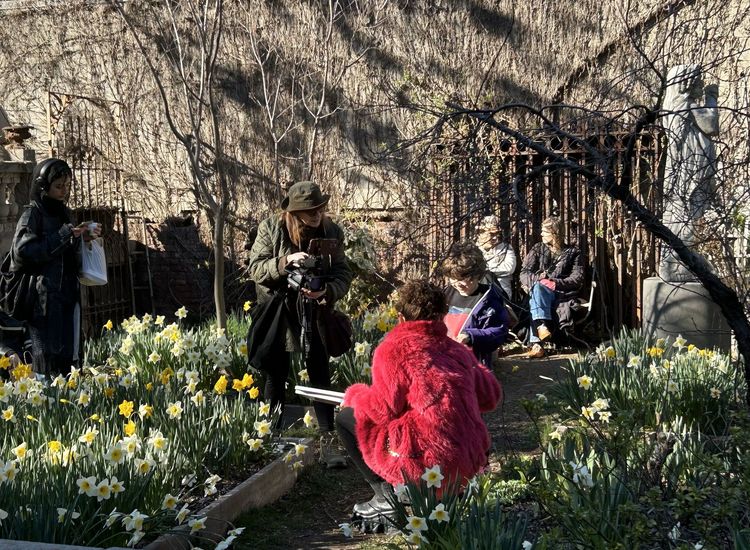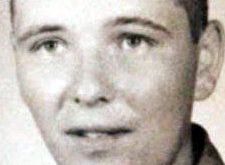Catherine Dunne.
PHOTO BY NOEL HILLIS
Page Turner / Edited by Peter McDermott
in her two decades as a fulltime writer, Catherine Dunne has written 11 books, her work has been translated into several languages and she has won the Giovanni Boccaccio International Prize for Fiction, in addition to being short-listed for several other awards. But Dunne is only now making her U.S. debut with the publication of “The Years That Followed.”
Roddy Doyle is one household literary name pleased to make the introductions. "”Exciting, elegant, urgent, true,” he said, “Catherine Dunne’s writing is all of these things, and a lot more. She really is one of Ireland’s best novelists."
“’The Years That Followed’ explores the lives of two very different young women,” Dunne said. “Pilar comes from the grinding poverty of Extremadura in Spain. Calista is the daughter of affluent parents in 1960s Dublin. Over the years, these young women’s lives become connected through violent, unexpected events – a connection that they never come to realize. They both have to struggle to survive and to define themselves and their futures in a world that is always tilted against them.”
In the view of Kirkus Reviews, “Calista and Pilar are wonderful characters to watch develop as they weather this theme and as they work to define and enrich themselves against steep, cruel odds. Lived-in, hard-earned feminism swirled with a noir tone and dark turns makes for a great read.”
Another early U.S. reviewer – for Publishers Weekly – agreed: "Both women are nuanced, sympathetic characters whose lives and loves are well developed throughout this darkly compelling story."
Catherine Dunne
Date of birth: Feb. 5, 1954
Place of birth: Dublin
Residence: Dublin
Published works: I’m the author of 10 novels and one work of non-fiction called “An Unconsidered People.” This one departure from the writing of fiction came about as a result of my fascination with Ireland’s stories of emigration. “An Unconsidered People” focuses on the Irish who left home in the 1950s and set sail to Britain. In the 1930s, four out of every five children born in Ireland were destined for the emigrant boat.
What is your writing routine? Are there ideal conditions?
I used to believe that the ideal conditions were silence, solitude and endless pots of tea. After several months in small village in India, with Bollywood music blaring from the speakers in the local café and a huge TV screen loudly broadcasting the Cricket World Cup, I learned that I can write anywhere. As long as there is tea.
What advice do you have for aspiring writers?
Read widely and voraciously. Keep a notebook. Learn to eavesdrop. Write a page a day. And drink tea. Accept that all writing is rewriting. Writing is organic: it grows as you do it. Inspiration comes as you write – not the other way around.
Name three books that are memorable in terms of your reading pleasure.
“A Thousand Acres,” by Jane Smiley. “The Shipping News” by E. Annie Proulx. And for my childhood self, “Daddy Long Legs,” by Jean Webster. Three different types of magic.
What book are you currently reading?
The luminous and outstanding “Ruby,” by Cynthia Bond.
Is there a book you wish you had written?
Anything by Jane Austen. If forced to choose, I’d probably opt for “Persuasion” – a quiet, subtle masterpiece.
If you could meet one author, living or dead, who would it be?
It would have to be Jane Austen. If only for the pleasure of telling her that although social conditions have changed beyond anything she could ever have imagined, her insights into the mysteries and silences of the human heart are still as illuminating as ever.
What book changed your life?
“Life Before Man,” by Margaret Atwood. I read it in the late 1970s, during a prolonged stay in Canada. I was writing short stories and poetry at the time and struggling to find my way. I came from a tradition that was firmly rooted in rural life and dominated by the writing of men. I was urban, young and, clearly, female. Atwood’s work opened a whole new imaginative universe to me – one in which the lives and challenges of young, urban voices – both male and female – were worthy subjects for fiction.
What is your favorite spot in Ireland?
The Coral Beach in Connemara. It’s called Trá na bPáistí – Beach of the Children. Beautiful spot and poignant memorial to the babies who died during the Famine.
You're Irish if...
Your response to every crisis or celebration is to put on the kettle.









